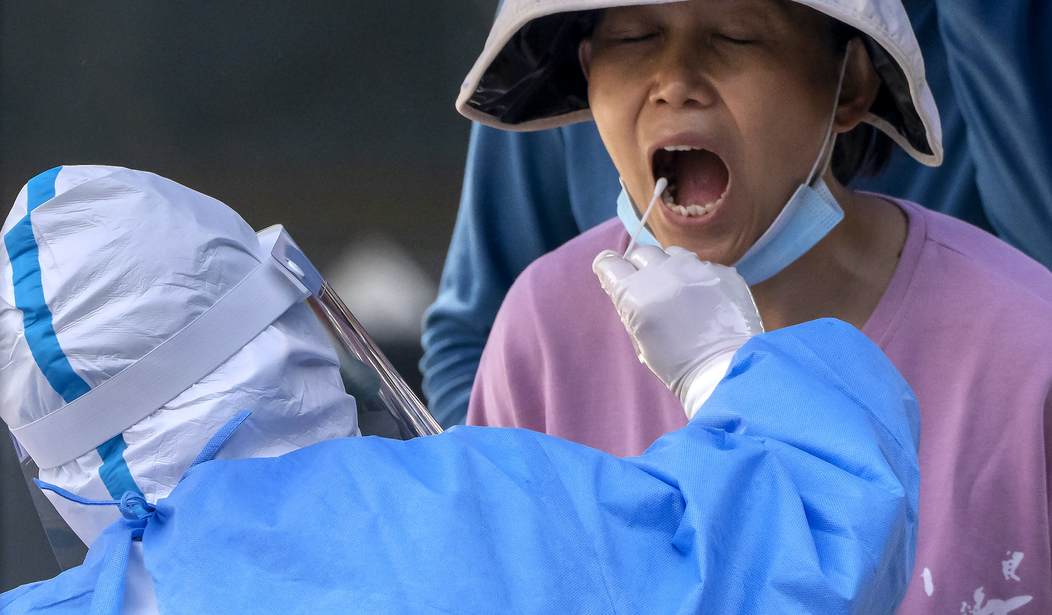The Biden administration announced on Wednesday a new COVID-19 testing policy for air travelers arriving from China. This came at the same time that China is abruptly ending its zero-COVID policies.
Cases of COVID-19 are rapidly surging across China as the country’s strict policies are ending. Due to a lack of trust in the transparency and honesty of China’s virus data, the CDC ordered any travelers coming from China, either directly or indirectly, to obtain a negative COVID-19 test no more than two days prior to traveling to the U.S. That also includes travelers from Hong Kong and Macau. The policy goes into effect on January 5. The delay is to give airlines time to put the policy in place. It affects all travelers over two years of age. By implementing this new order, CDC hopes to slow the spread of COVID-19 in the U.S.
I’m old enough to remember when Joe Biden and all the other Democrats had a hissy fit over the previous administration placing restrictions on travelers from China in order to try to stop the spread of COVID-19 in the U.S. The former president and his administration were called all kinds of names and accused of xenophobia. That was in 2020 and here we are now in 2022, almost 2023, and Joe Biden is putting his own restriction into place. I wonder what changed?
As we know, lockdowns don’t work. The Chinese are finding that out now. Lockdowns just delay a surge in cases because immunity isn’t allowed to build up against the virus during mass lockdowns. Added to the problems in China are the fact that the government mostly refused to use Western COVID vaccines, using their own less effective vaccines instead. Most Chinese residents are not as effectively vaccinated as they could be.
There are concerns about new variants popping up.
Officials said that the U.S. would also be expanding the Traveler-based Genomic Surveillance program (TGS), which collects anonymous nasal swabs from international travelers at select airports in order to help identify any new variants. It will be expanded to airports in Seattle and Los Angeles.
China is ending its brutal authoritarian COVID-19 policies in order to end its economic slump and ahead of the Lunar New Year. The Lunar New Year will begin on January 22 and it is China’s busiest travel season. Other countries are also requiring COVID-19 tests from travelers from China. Japan, India, Italy, South Korea, and Taiwan have all announced their requirements.
The latest decision could send free-spending Chinese tourists to revenue-starved destinations in Asia and Europe for Lunar New Year, which begins Jan. 22 and usually is the country’s busiest travel season. But it also presents a danger they might spread COVID-19 as infections surge in China.
Travel services companies Trip.com and Qunar said international ticket bookings and searches for visa information on their websites rose five to eight times after Tuesday’s announcement. Top destinations included Japan, Thailand, South Korea, the United States, Britain and Australia.
The National Immigration Administration of China said it will start taking applications Jan. 8 for passports for tourists to go abroad.
The agency said it will take applications to extend, renew or reissue visas but gave no indication when they might be issued to first-time applicants.
China will “gradually resume” admitting foreign visitors, the agency said. It gave no indication when tourist travel from abroad might resume.
Economists and some health experts expect the Communist Chinese to keep limits on travel into China until mid-2023 as it carries out a campaign to vaccinate millions of elderly citizens. The government hopes to mitigate a public health crisis by doing so.
The Chinese government announced on Monday it will end quarantine requirements for travelers entering the country from abroad, effective January 8. Foreign companies see this as a good change and an important step to re-building business activity. Global companies have been shifting investments away from China because foreign executives have been blocked from entering the country.








Join the conversation as a VIP Member